Japan
VALENTINE’S DAY: MY FAVORITE HOLIDAY… EXCEPT IN JAPAN
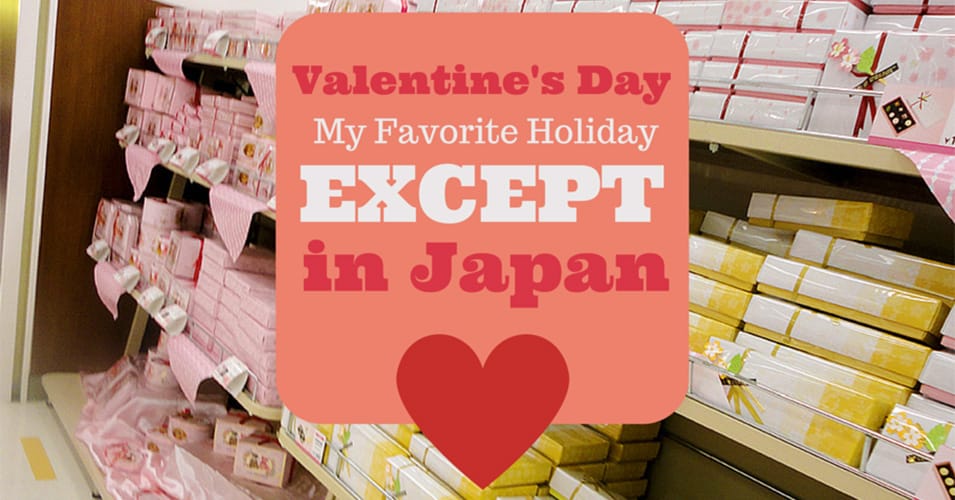
Are you one of those people who goes on and on about how much you hate Valentine’s Day? If you think there’s nothing worse than shelling out loads of cash to show your love because of some commercial holiday, then you should… never move to Japan.

Talking about Valentine’s Day customs around the world, I briefly mentioned that women do all the giving for Valentine’s Day in Japan while the men just sit back and take it all in, but it’s so much more than that. Valentine’s Day in Japan is horribly frustrating– and that’s coming from someone who’s favorite holiday is Valentine’s Day.
Giri-choco, honmei-choco, tezukuri-choco, tomo-choco … What does it all mean?!
FEBRUARY 14TH – VALENTINE’S DAY
In the month leading up to Valentine’s Day, stores begin to put out elaborate displays selling chocolates and other such gifts, much like any other country. However, these displays are all geared towards women looking to buy chocolate.
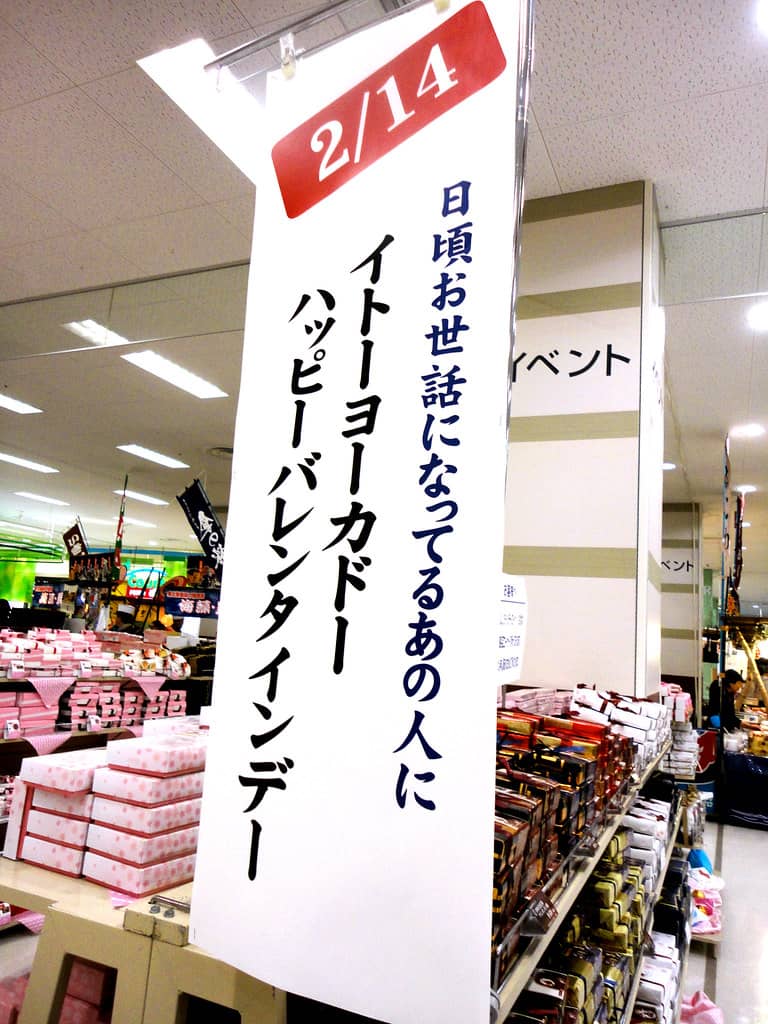
In Japan, women have the social obligation to give every man they know chocolate on this day. Seeing as in most other countries people only give gifts to those they have romantic feelings for on Valentine’s Day, this gets really confusing when trying to figure out where your relationship with someone stands.
To try to make it a little less confusing, the types of chocolates given by women are called different terms based on the quality, quantity, price and effort of obtaining said chocolate.
The lowest form of chocolate is called giri-choco (義理チョコ), literally “obligation chocolate”. These chocolates are given to men you are, well… obligated to give them to. This includes any male bosses, colleagues, friends, neighbors, etc.– basically any men that the woman has no romantic interest in yet interacts with on a regular basis.
Girls will often buy 30 boxes of giri-choco each year. Each box is generally around US$10 so they end up spending well over US$300! It’s no wonder that chocolate companies in Japan sell more than half their annual sales during the weeks leading up to Valentine’s Day.

Up from giri-choco would be what they call tomo-choco (友チョコ), or literally “friend chocolate”. This would be, as you probably guessed, chocolate they give to friends, including to female friends. So not only do women have to buy chocolate for every man in their life, but they are also expected to buy chocolate for their close female friends. These chocolates are more expensive than giri-choco.
Honmei-choco (本命チョコ), is, finally, the chocolate reserved for your true “heart’s desire”. This is, of course, the chocolate you give to the man you are dating, are married to, or would like affection returned from. This is usually store-bought chocolate; however, many women will choose to hand make chocolate because they believe store-bought isn’t good enough.
Tezukuri-choco (手作りチョコ), is handmade chocolate and it is preferred by most males because of the effort, emotion and time required to make it. This is probably the only type of chocolate that gives a definitive intension.
So not only do women have to spend time and money to shop for all these different chocolates, but now they are also expected to make chocolates as well. To make it a bit easier, tezukuri-choco kits are now sold in stores providing everything one would need to make handmade chocolate.
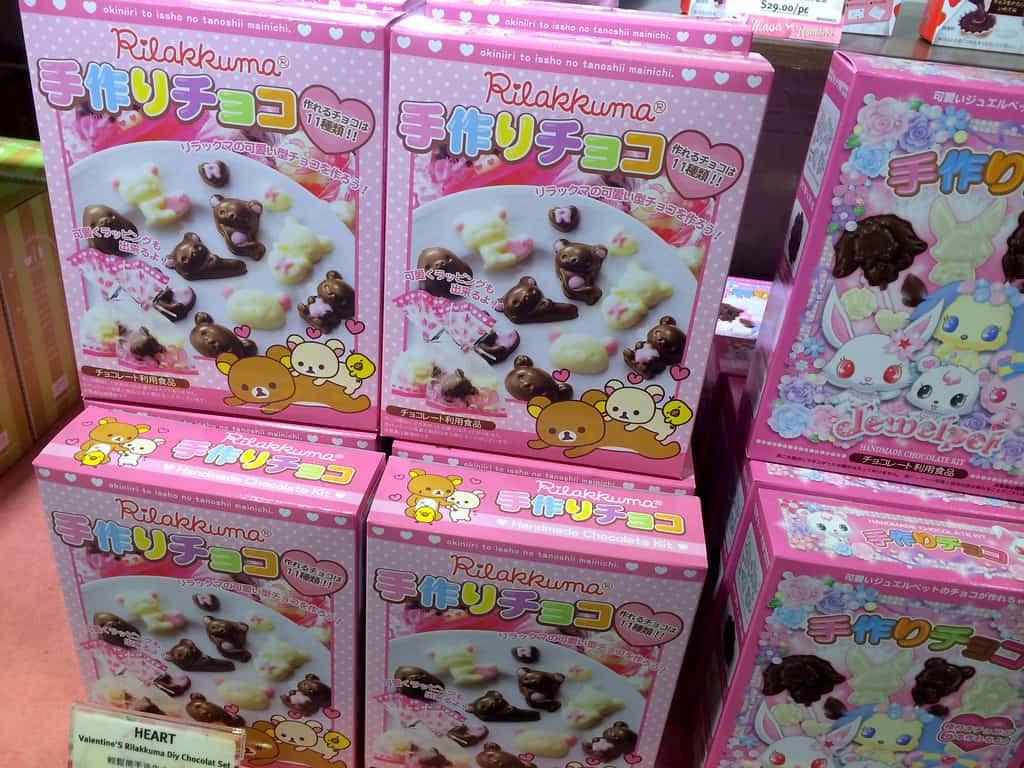
Sometimes women also hand-make chocolate-related goods, such as chocolate cookies or chocolate cakes to give the men in their family, such as their father, grandfather, and so on.
The last type of chocolate is actually called jibun-choco (自分チョコ), with jibun meaning “self”. Yup, with all this shopping for chocolate, most women can’t help but to spend around US$30 on nice chocolates for themselves.
You might think that breaking it down and explaining it like that doesn’t sound too bad, but despite having all of these terms, chocolate is still chocolate.
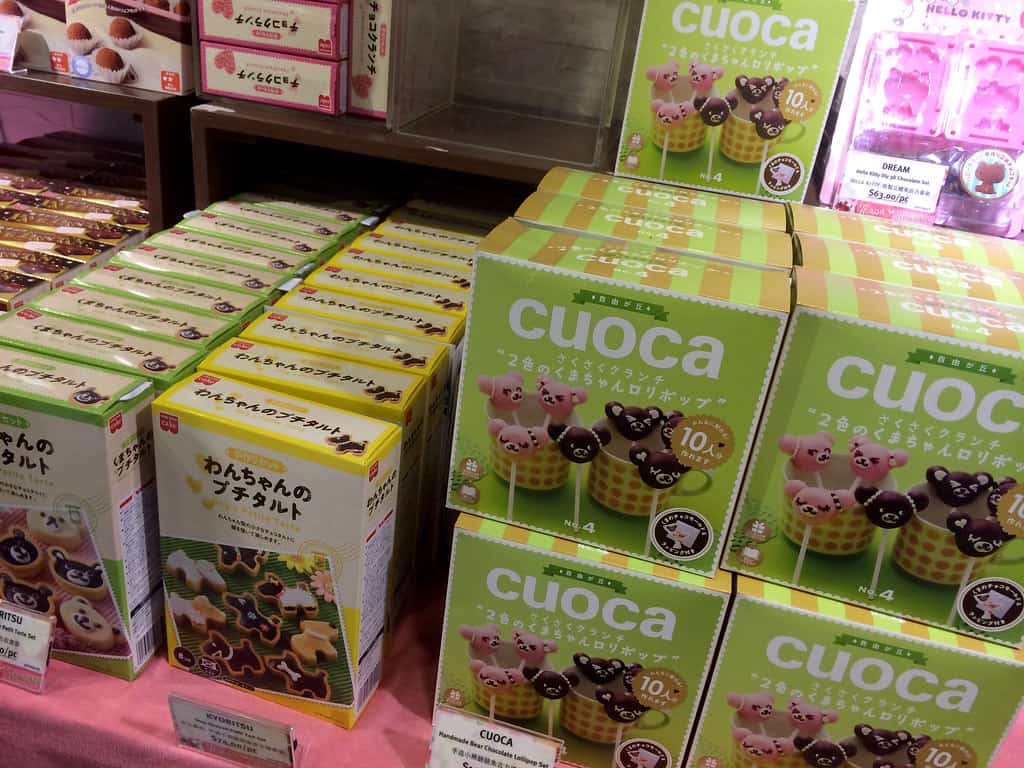
Like I said before, unless it’s handmade, there’s no actual standard for clarifying the chocolate’s meaning. When you go to a department store to purchase the chocolate, the only real difference is the price. They aren’t divided into “giri-choco” or “honmei-choco” sections– it’s all completely subjective.
This can quickly turn into a nightmare trying to choose a chocolate that isn’t too cheap, yet isn’t too expensive, that clearly shows your intensions. I’ve heard plenty of stories of guys who thought they were receiving honmei-choco, only to later be embarassed when they found out it was giri-choco and vice versa.
Having all of these obligations and rules may not make Valentine’s Day in Japan sound very romantic, but it is still a time when many women decide to confess their love to men. However, since men don’t do any of the gift giving, they basically have to wait a whole month to see if their love will go unrequited or if it will be returned, which brings us to White Day.
MARCH 14TH – WHITE DAY
White Day was created in 1978 by a Fukuoka-based confectionery company, Ishimura Manseido (石村萬盛堂). Originally they marketed marshmallows to men calling it “Marshmallow Day” (マシュマロデー), but this didn’t do well.
Instead, the National Confectionery Industry Association (全国飴菓子工業協同組合) decided to establish “Ai ni Kotaeru White Day” (“Answer Love on White Day”), now simply called White Day, as an answer day or reply day to Valentine’s Day. So on this day one month later, men return the favor to the women who gave them chocolates and other presents on Valentine’s Day.
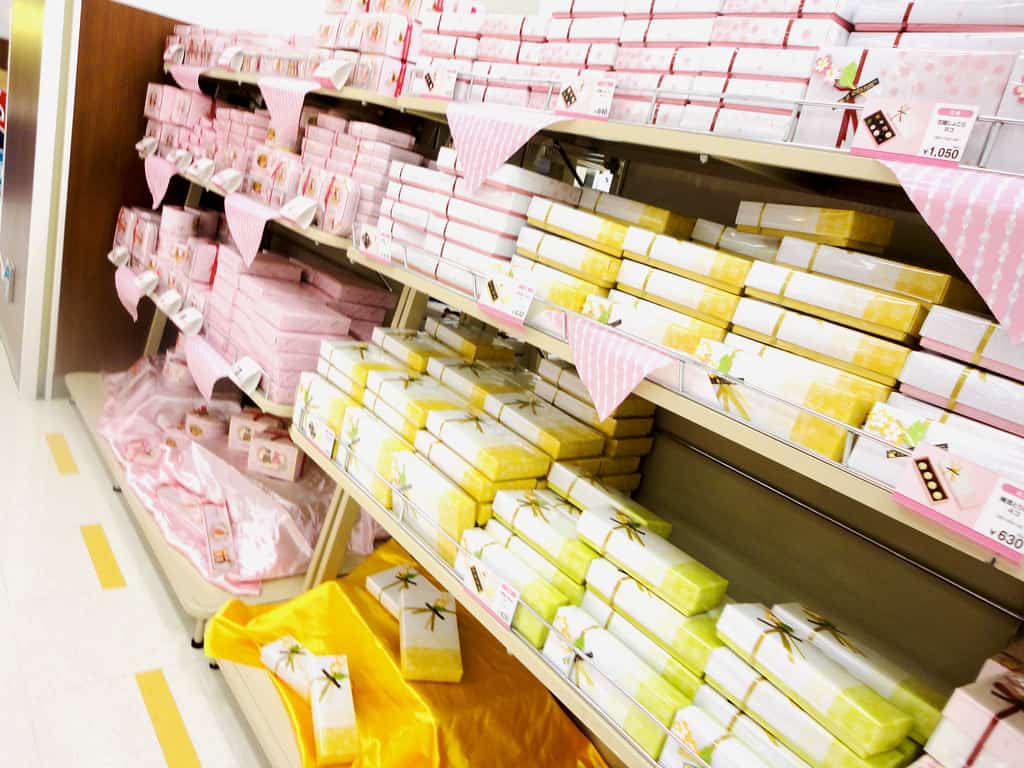
So again, a few weeks before White Day, stores line their shelves with cookies, white chocolates, marshmallows and other gifts for women. With all of the displays and advertising it would be impossible for even the most forgetful man to use the excuse that he forgot.
The rule pretty much states that if a man received chocolate from a woman on Valentine’s Day, he needs to give her something on White Day. Again, this can be confusing because you may be receiving these gifts out of obligation, so you can’t always tell if that person truly returns your feelings.
Sigh… just when you thought love couldn’t get any more complicated!
So the next time you complain about having to get your partner a box of chocolates or that you’re single on Valentine’s Day… just be glad you aren’t in Japan!
WHAT DO YOU THINK OF VALENTINE’S DAY AND WHITE DAY IN JAPAN?
> Some other articles about Japan that may interest you:
- Chabudai Table – The traditional Japanese low table
- Why Christmas = KFC in Japan
- Is Japan really that expensive?
